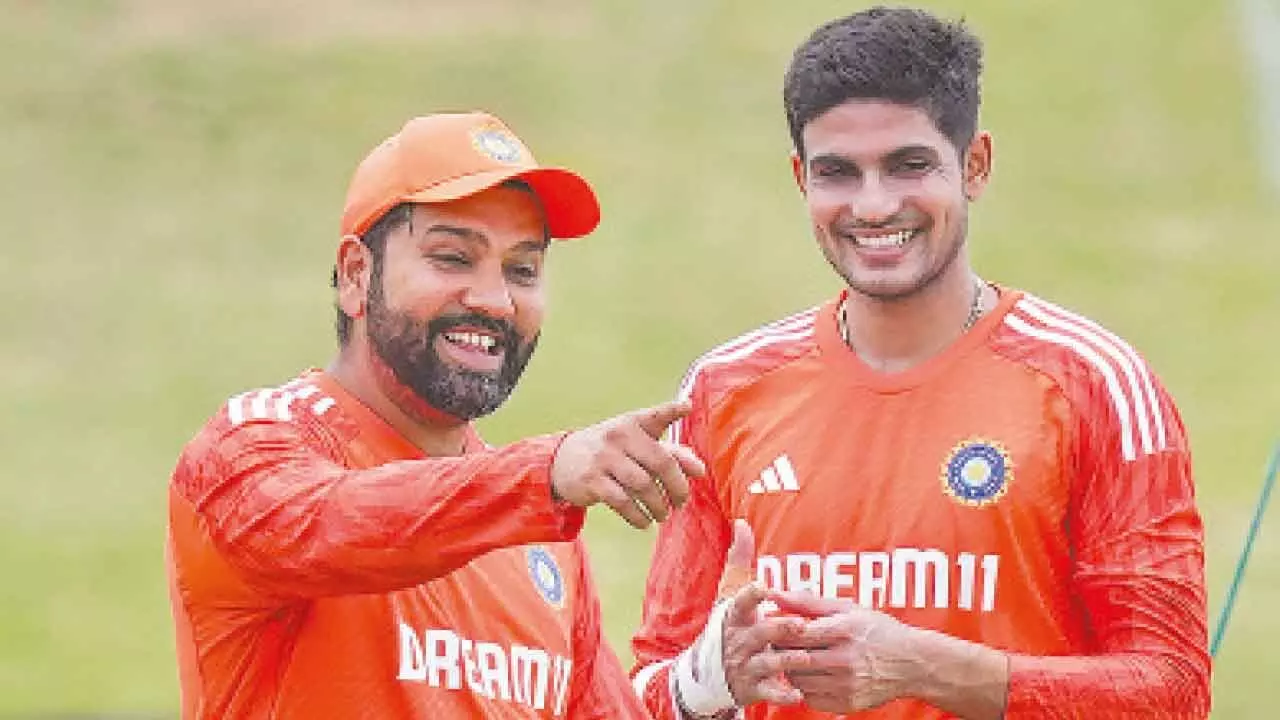A lesson in leadership: What corporate India can learn from BCCI’s thoughtful selection strategy
Business strategist Hirav Shah hails BCCI and selectors for ODI captaincy change from Rohit Sharma to Shubman Gill
A lesson in leadership: What corporate India can learn from BCCI’s thoughtful selection strategy

In a move that reflects foresight, clarity, and long-term planning, the Board of Control for Cricket in India (BCCI) has appointed Shubman Gill as India’s new ODI captain, succeeding Rohit Sharma. The transition has stirred conversations not just in sporting arenas but also in boardrooms across the country.
Business Strategist Hirav Shah hails this decision as a “case study in strategic succession planning,” calling it an example of how the right timing and preparation can define the future of any organisation.
For years, Rohit Sharma has exemplified calm leadership, guiding India through major tournaments and setting standards of consistency. The shift to Shubman Gill, according to business strategist Hirav Shah, represents not a replacement but a renewal of vision.
He believes that true leadership transitions happen when institutions act from clarity, not compulsion. In his view, the BCCI and selectors displayed maturity by identifying the right time, the right individual, and the right temperament — a principle as vital in sports as it is in business.
The power of perfect timing
Hirav Shah explains that timing defines every successful leadership change. The BCCI’s ODI captaincy shift from Rohit Sharma to Shubman Gill, he says, was executed with precision — maintaining experience while sparking new energy.
Just as top organisations groom successors years in advance, the BCCI has prepared Gill through mentoring and responsibility. This, according to Shah, reflects strategic foresight and effective succession planning.
The face of future-ready leadership
At only 25, Shubman Gill brings composure, vision, and hunger to lead India’s next chapter. Shah points out that Gill is not merely stepping into a leadership role — he represents a generational shift toward innovation, adaptability, and accountability.
The BCCI’s decision, he adds, proves that the focus is not just on winning matches but on building a decade-long roadmap for stability and success. Just like in business, where forward-thinking leaders invest in the future rather than reacting to the present, this transition symbolizes sustainability and long-term planning.
Rohit’s enduring legacy
Even as the spotlight shifts to Shubman Gill, Rohit Sharma’s legacy remains the foundation of Indian cricket’s leadership culture. His empathy, tactical awareness, and consistency have built a structure of trust and belief. Shah observes that Rohit Sharma’s calm leadership and his ability to nurture young talent will remain a benchmark for years.
He adds that true leadership is about knowing when to empower others — a mindset that ensures continuity without chaos. The graceful handover between the two players, he notes, reflects maturity and institutional vision rarely seen in sports.
BCCI’s strategic foresight
Shah believes the BCCI and selectors displayed strong foresight by blending respect for experience with trust in new talent. This was not a reactive move but a validated decision — carefully timed and strategically prepared.
The ODI captaincy change from Rohit Sharma to Shubman Gill stands, he says, as a model of sustainable leadership and long-term vision.
Lessons beyond cricket
Shah believes this leadership shift offers lessons beyond cricket. Every organisation faces the challenge of grooming successors who carry its values forward. Whether it’s a startup or a family enterprise, the fundamentals remain the same — timing, validation, and trust.
The BCCI’s decision, he says, turns leadership change into a strategic opportunity, not a forced reaction.
Final word
The ODI captaincy transition from Rohit Sharma to Shubman Gill represents more than a cricketing decision — it’s a leadership lesson. By recognising timing, grooming future leaders, and ensuring continuity, the BCCI and selectors have set an example of strategic succession.
As Shah concludes, leadership is not about holding the top position forever; it’s about ensuring that the vision outlives the leader. The BCCI’s move proves that when strategy, validation, and foresight come together, the legacy of excellence continues — stronger than ever.

